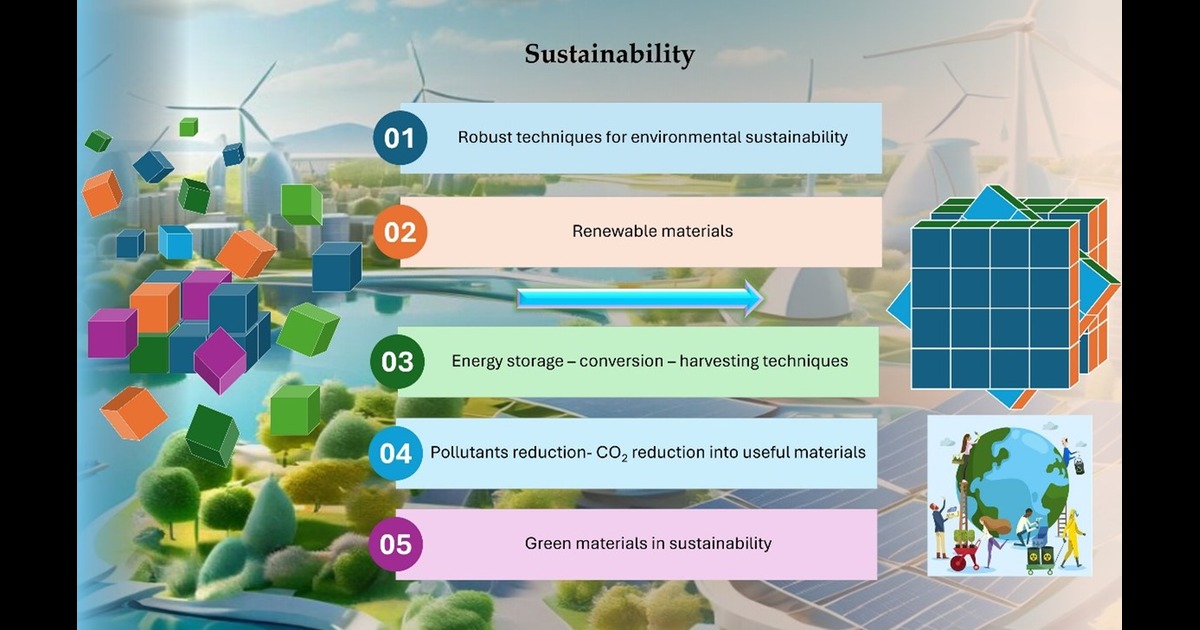- 3.3Impact Factor
- 7.7CiteScore
- 20 daysTime to First Decision
Applications of Nanostructure Materials in Energy and Environmental Sustainability
This special issue belongs to the section “Sustainable Chemical Engineering and Technology“.
Special Issue Information
Dear Colleagues,
Nowadays, nanomaterials are ubiquitous, and their applications are promising and valuable, especially with regard to hot topics related to environmental sustainability. In fact, the enhancement of new catalysts and safer materials that have less of an impact on the environment is crucial as we work toward the UN Sustainable Development Goals.
For this Special Issue, we will accept contributions of both experimental and review articles on energy conversion, storage, and harvesting, as well as on the use of catalysts in environmental applications.
Special attention will be given to technologies related to solar and visible light for water decontamination, hydrogen production, and carbon dioxide reduction.
Due to the vastness of topics, greater importance will be placed on experimental papers, critical reviews, and perspective articles, so that we may compare similarities and differences across different fields, leading to collaborations and future advancements.
Dr. Daniele Dondi
Dr. Dhanalakshmi Vadivel
Guest Editors
Manuscript Submission Information
Manuscripts should be submitted online at www.mdpi.com by registering and logging in to this website. Once you are registered, click here to go to the submission form. Manuscripts can be submitted until the deadline. All submissions that pass pre-check are peer-reviewed. Accepted papers will be published continuously in the journal (as soon as accepted) and will be listed together on the special issue website. Research articles, review articles as well as short communications are invited. For planned papers, a title and short abstract (about 250 words) can be sent to the Editorial Office for assessment.
Submitted manuscripts should not have been published previously, nor be under consideration for publication elsewhere (except conference proceedings papers). All manuscripts are thoroughly refereed through a single-blind peer-review process. A guide for authors and other relevant information for submission of manuscripts is available on the Instructions for Authors page. Sustainability is an international peer-reviewed open access semimonthly journal published by MDPI.
Please visit the Instructions for Authors page before submitting a manuscript. The Article Processing Charge (APC) for publication in this open access journal is 2400 CHF (Swiss Francs). Submitted papers should be well formatted and use good English. Authors may use MDPI's English editing service prior to publication or during author revisions.
Keywords
- photocatalysis
- materials from renewable sources
- water treatment
- energy storage
- energy harvesting
- energy conversion
- hydrogen production and storage
- carbon dioxide reduction
- solar energy

Benefits of Publishing in a Special Issue
- Ease of navigation: Grouping papers by topic helps scholars navigate broad scope journals more efficiently.
- Greater discoverability: Special Issues support the reach and impact of scientific research. Articles in Special Issues are more discoverable and cited more frequently.
- Expansion of research network: Special Issues facilitate connections among authors, fostering scientific collaborations.
- External promotion: Articles in Special Issues are often promoted through the journal's social media, increasing their visibility.
- e-Book format: Special Issues with more than 10 articles can be published as dedicated e-books, ensuring wide and rapid dissemination.

